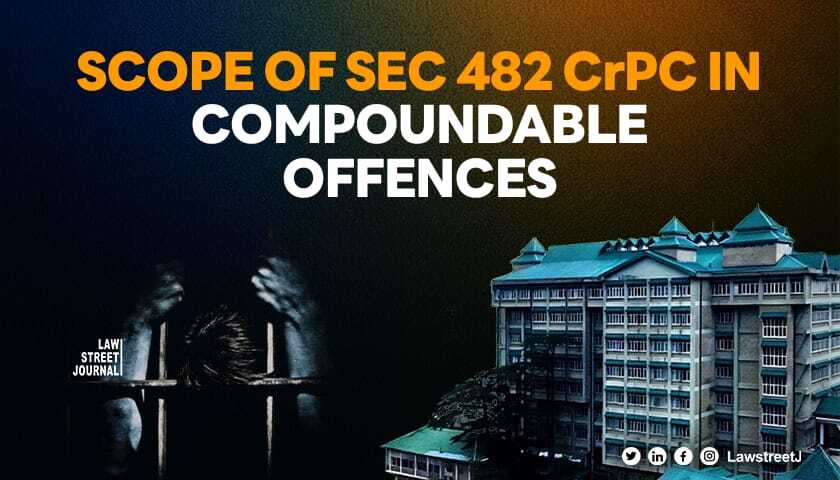Shimla: The Himachal Pradesh High Court has delivered a significant order clarifying the scope of Section 482 of the Criminal Procedure Code (Cr.P.C.) in cases involving compoundable offences. The court ruled that the inherent powers under Section 482 cannot be invoked when an alternative remedy is available under Section 320(1) for compounding offences.
A single-judge bench of Justice Rakesh Kainthla dismissed a petition seeking to quash an FIR registered for offences under Sections 323, 504, and 506 read with Section 34 of the Indian Penal Code (IPC). The court noted that all these offences are compoundable under Section 320(1) of the Cr.P.C. without requiring the court’s intervention.
Rejecting the petitioners’ arguments, the court held, “There exists no reason to exercise the extraordinary power vested in this Court under Section 482 of Cr.P.C. when an alternative remedy is available.”
The court observed that the petition failed to explain why the petitioners could not approach the trial court to compound the offences. It stated, “Para-9 of the petition states that there is no other efficacious remedy available to the petitioners except to file the present petition seeking quashing of the F.I.R. This is an incorrect statement because Section 320(1) of the Cr.P.C. confers a right upon the persons mentioned in the section to compound the offence.”
Emphasizing the limited scope of Section 482, the court cited several Supreme Court judgments establishing that inherent powers should not be exercised when specific remedies are provided in the Code. The court noted, “It was held in Madhu Limaye v. State of Maharashtra, (1977) 4 SCC 551: 1978 SCC (Cri) 10, that inherent power should not be exercised when a specific remedy exists.”
The court also clarified that the offence under Section 506 of the IPC is compoundable, rejecting arguments to the contrary.
In conclusion, while dismissing the petition, the court stated that this order would not prevent the parties from approaching the trial court to seek the composition of the offences.



![Himachal HC Grants Bail to Man Accused of Unnatural Acts with Cow [READ ORDER]](/secure/uploads/2020/11/lj_8855_Himachal_Pradesh_High_Court.jpeg)
![Remaining in India after expiry of visa is offence, Himachal Pradesh HC reiterates while denying bail [Read Petition]](/secure/uploads/2023/12/lj_3841_e40384f4-2611-4a51-b179-97824c5e53c7.jpg)

![Supreme Court Stays Himachal Pradesh HC Order, Sanjay Kundu to Remain as State DGP Amid Businessman's Complaint [Read Order]](/secure/uploads/2024/01/lj_5499_5a926c6d-aa3b-4344-b54d-2c7fc5145ace.jpg)






